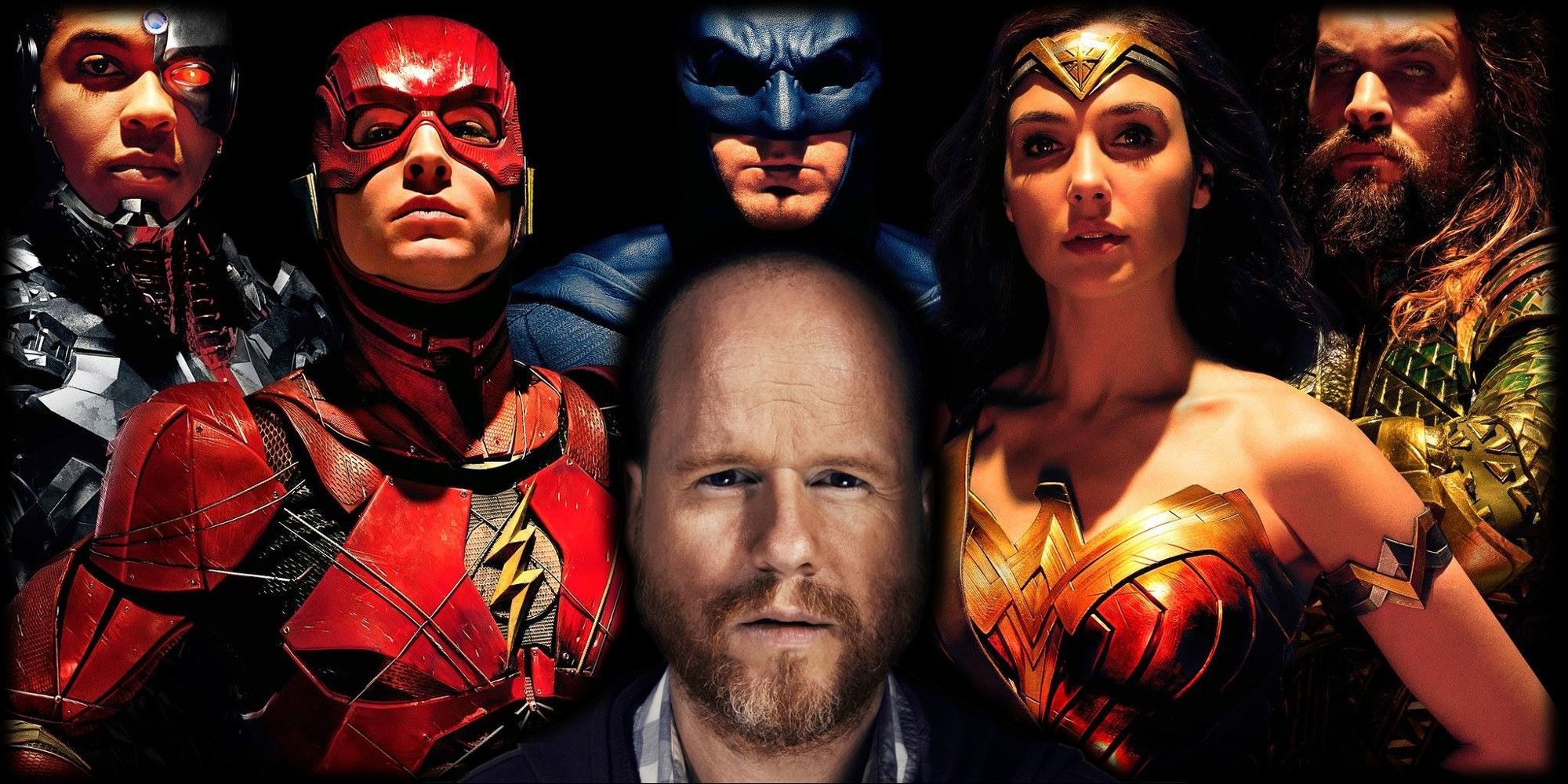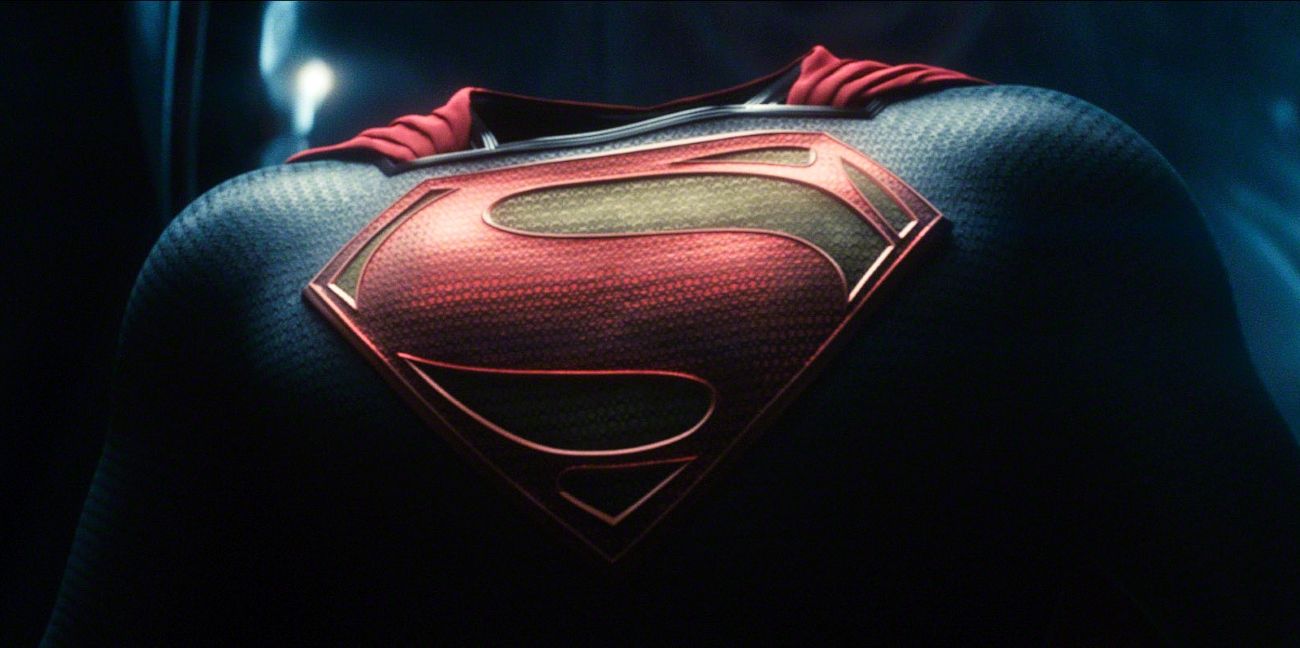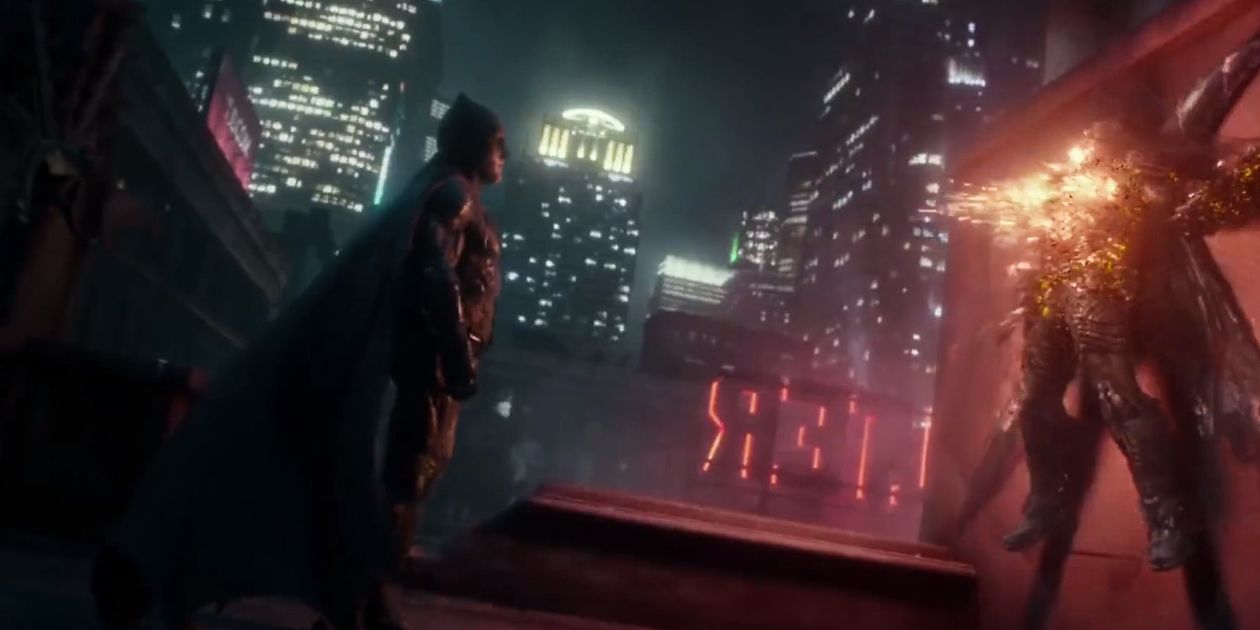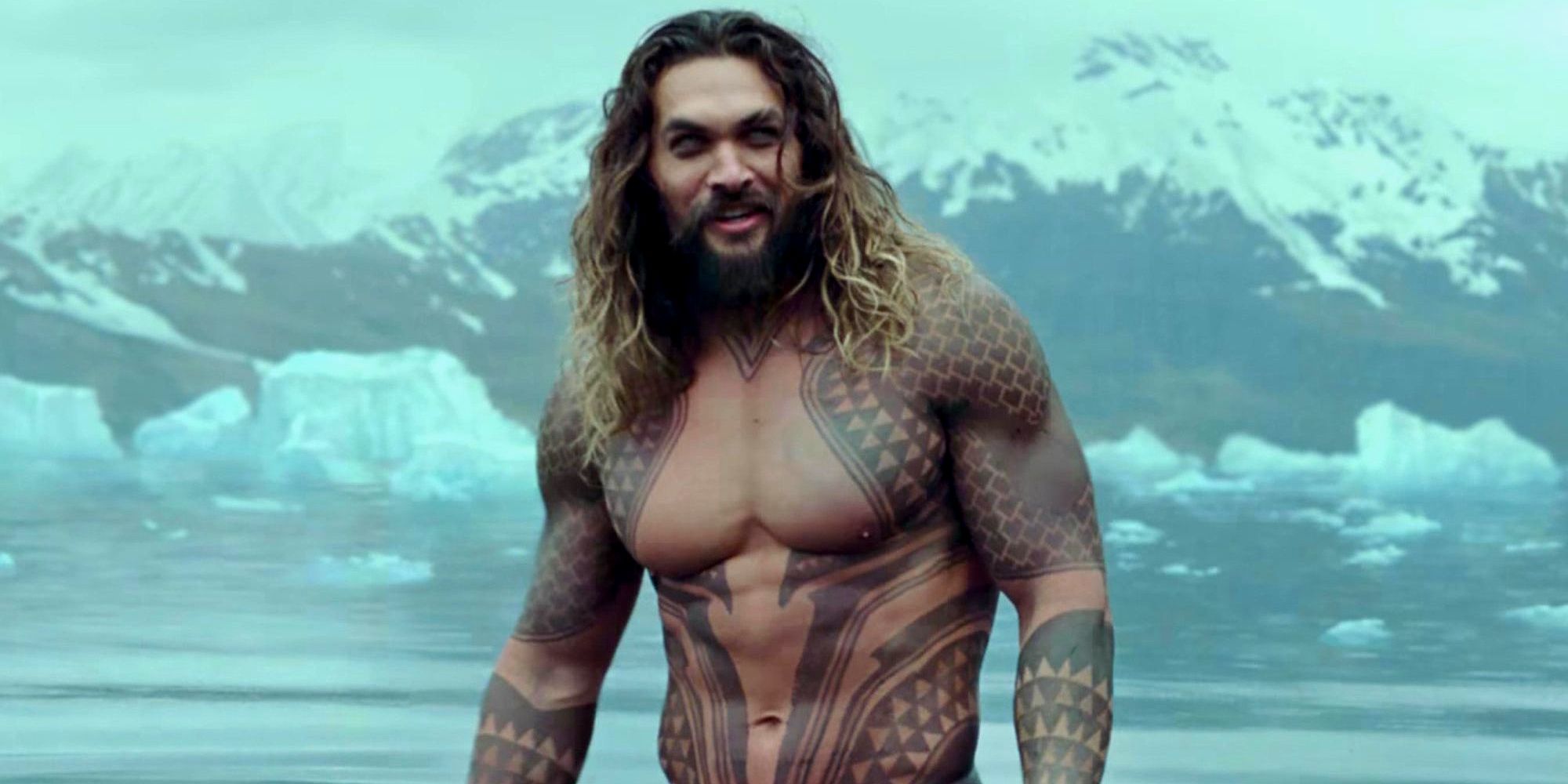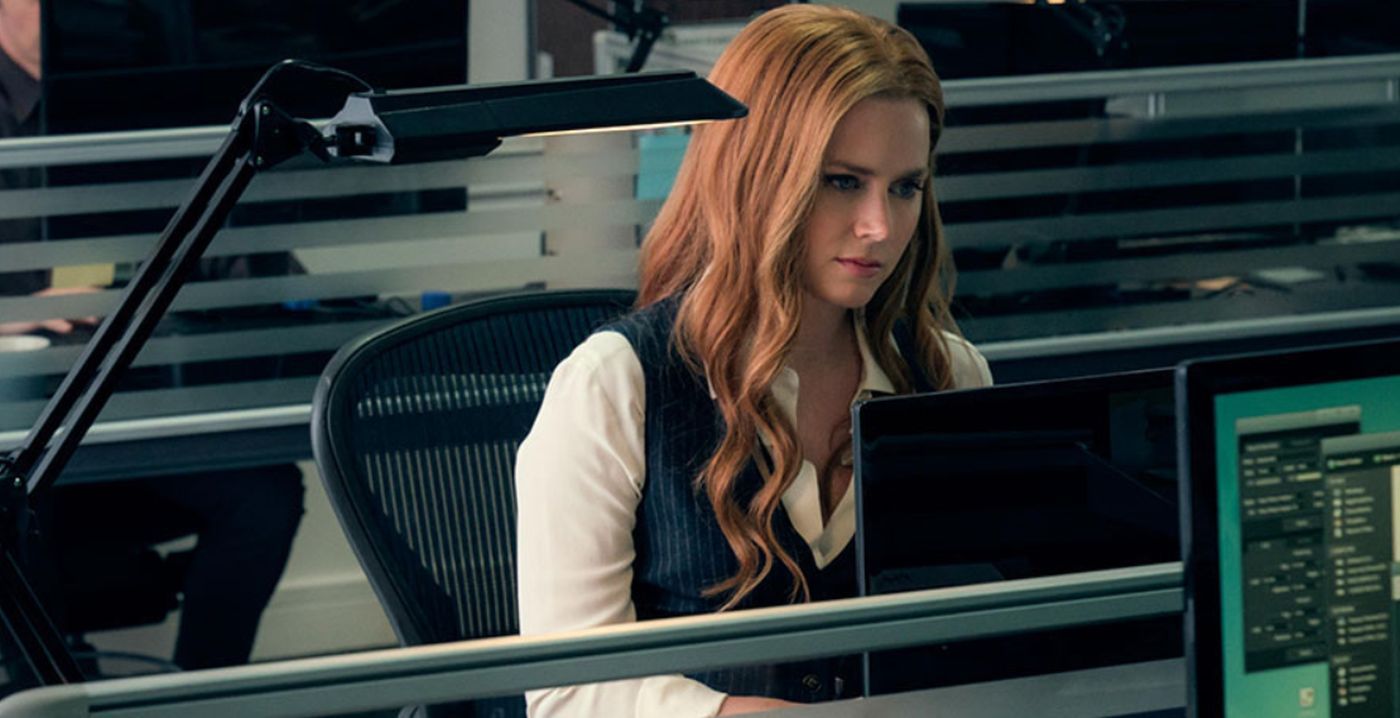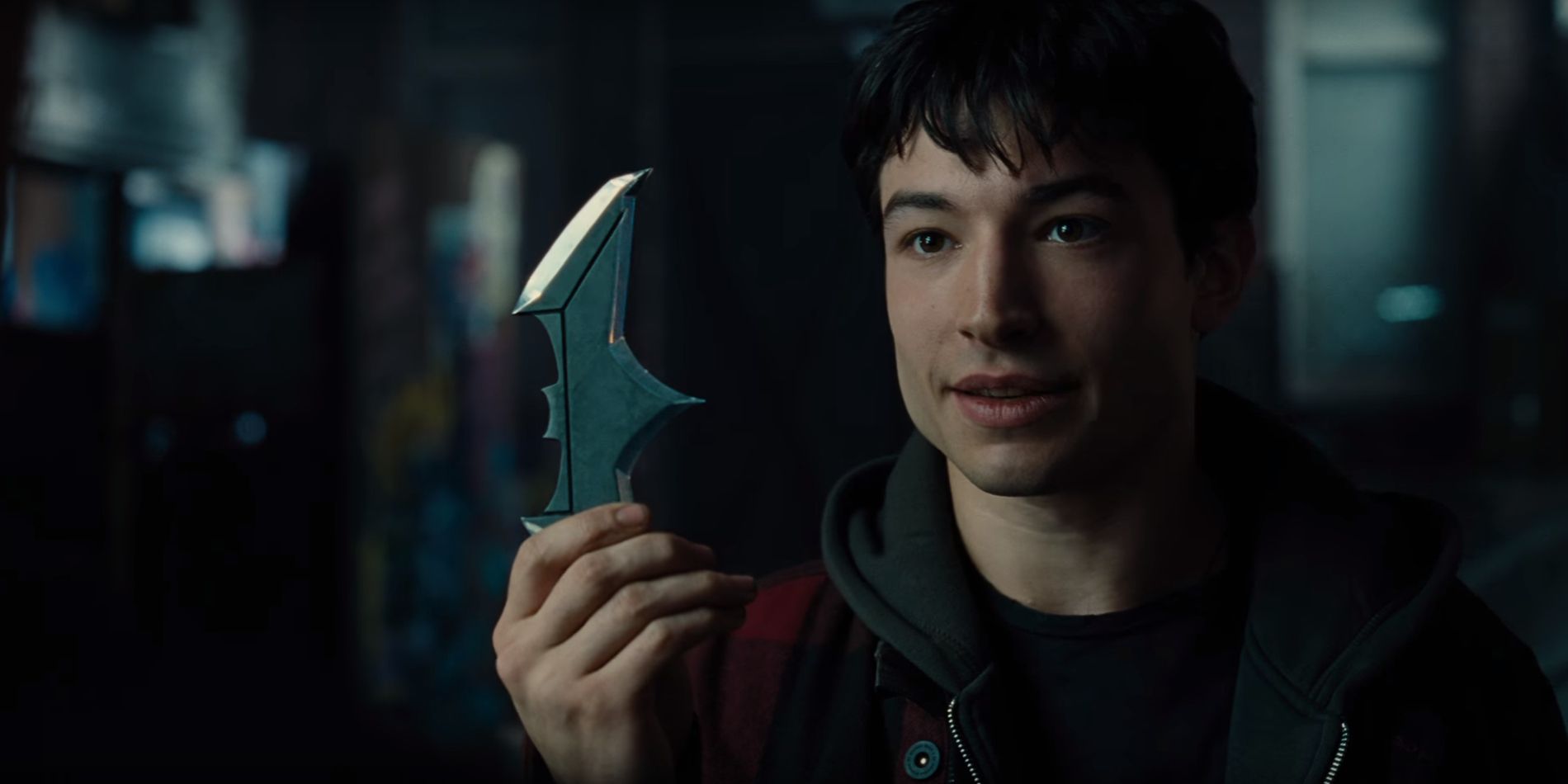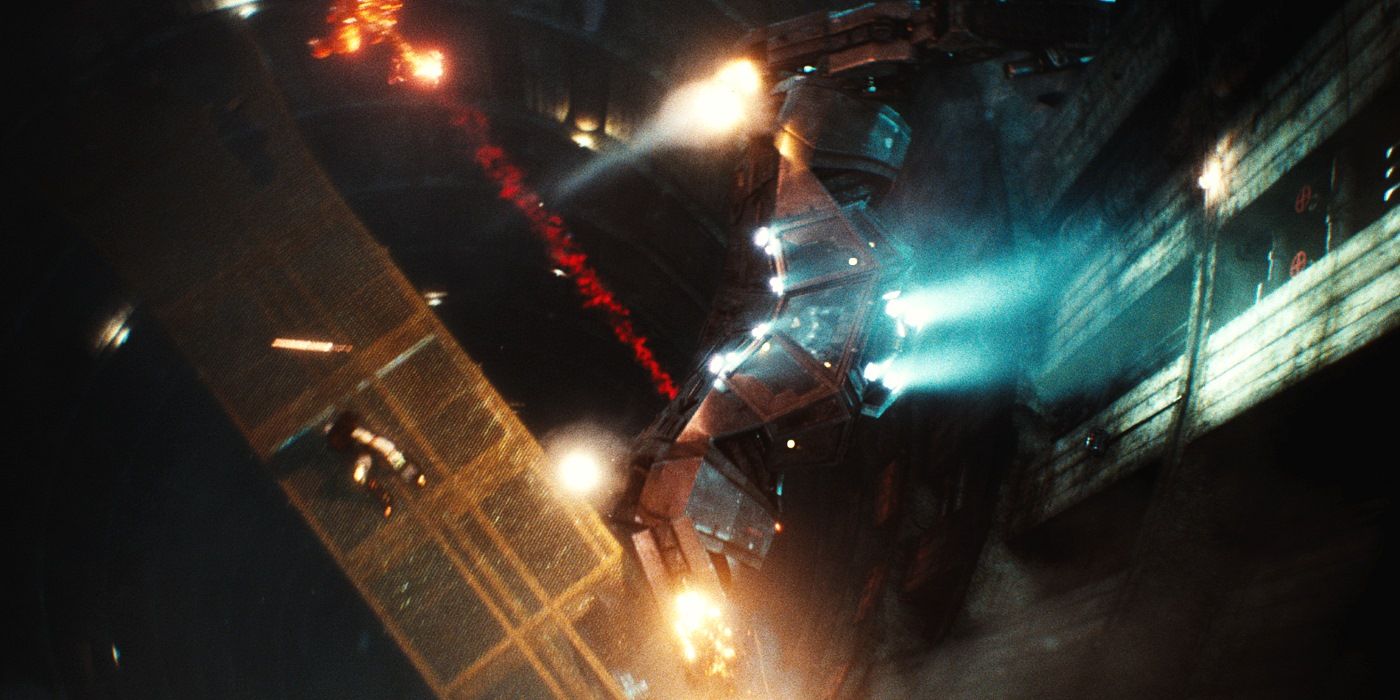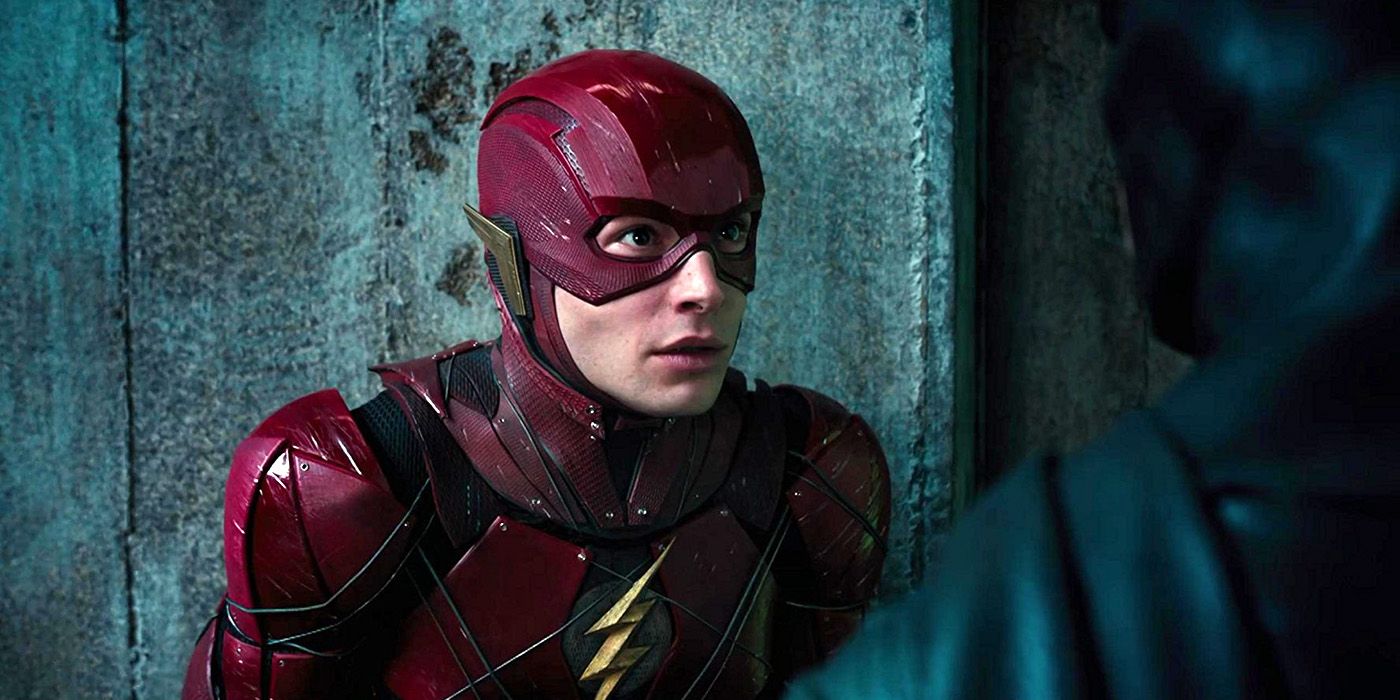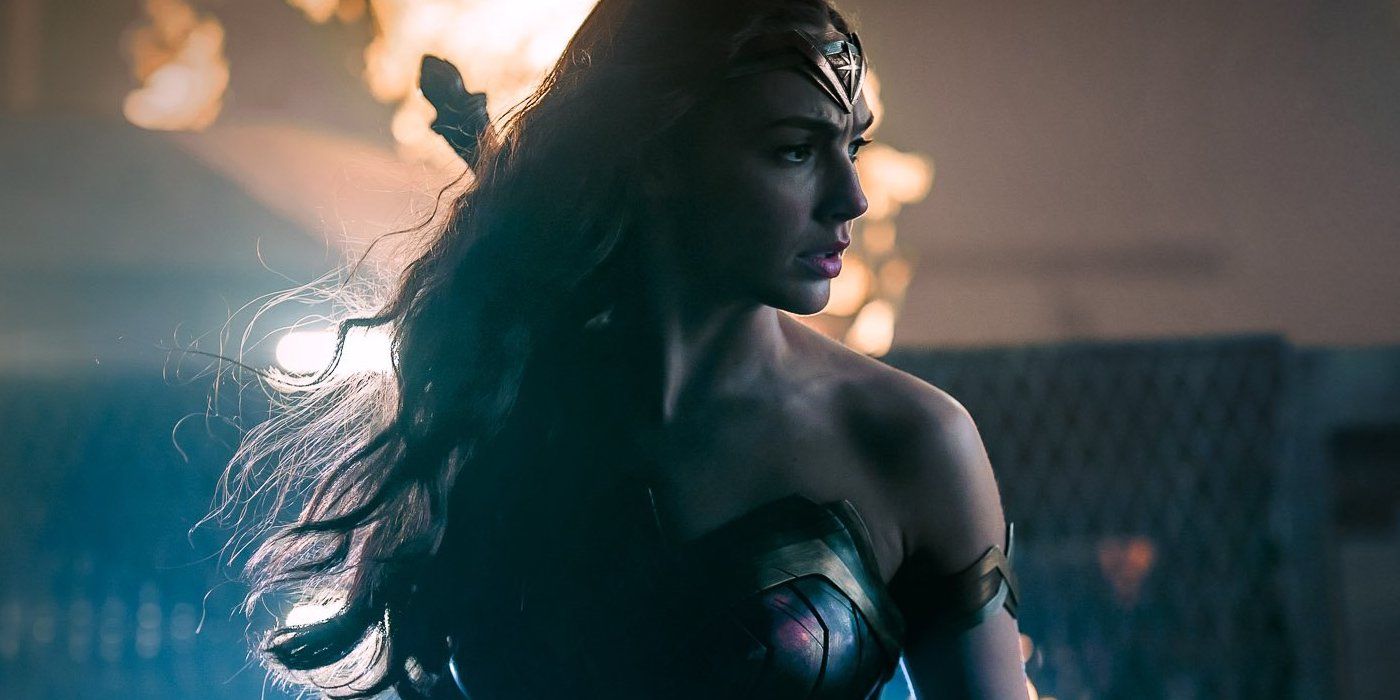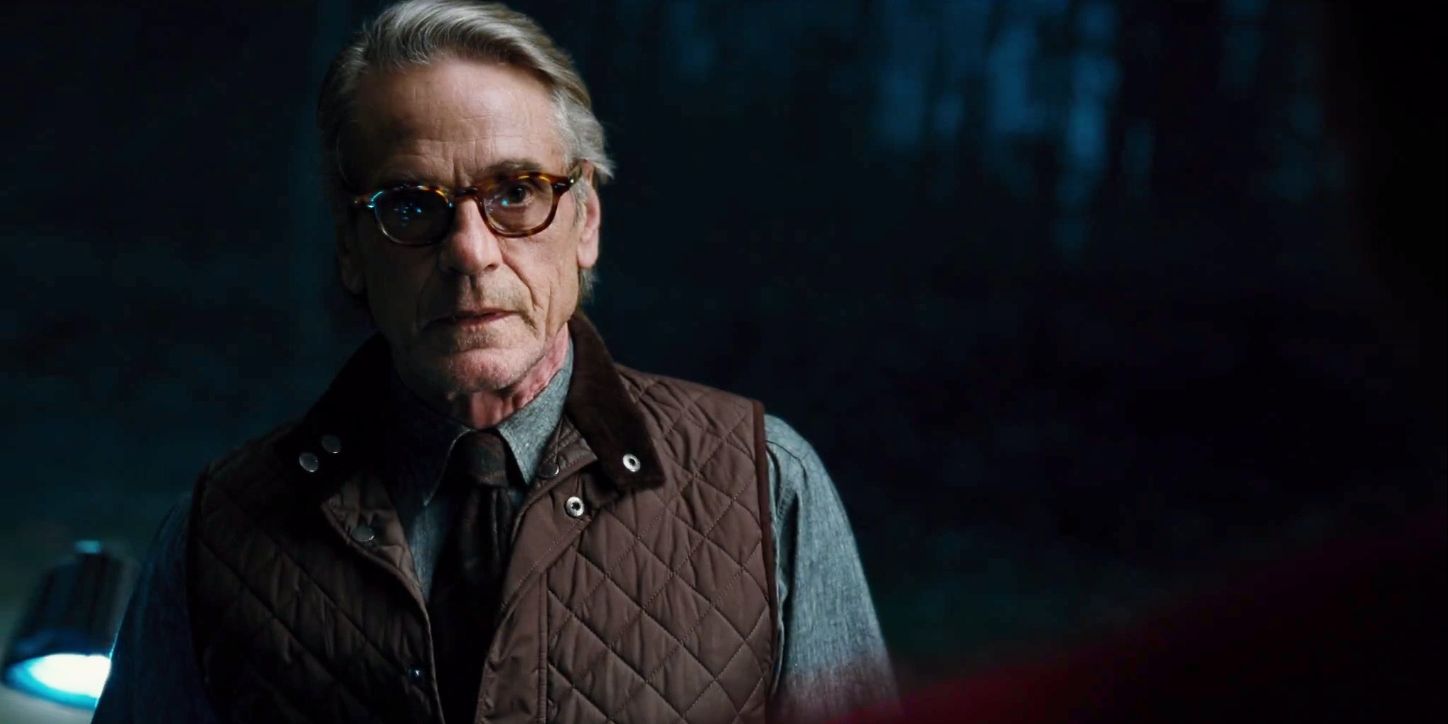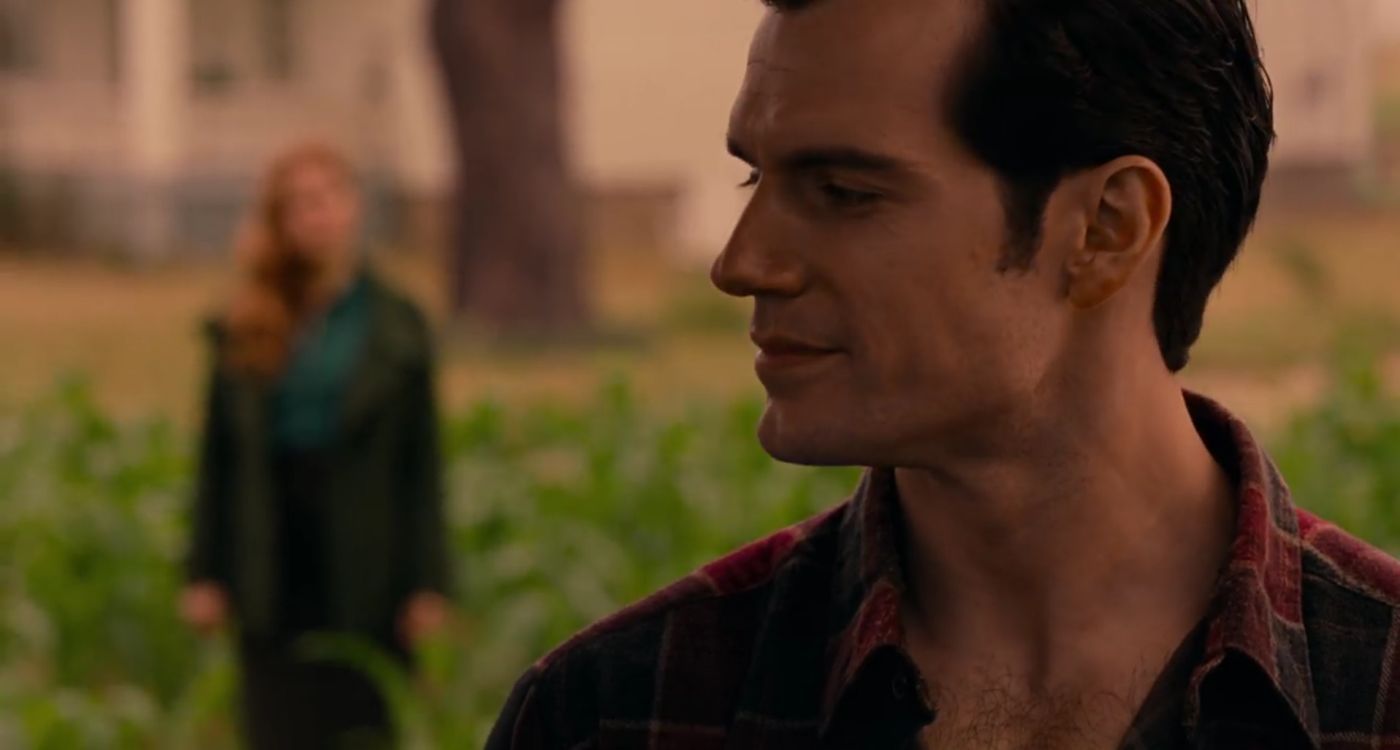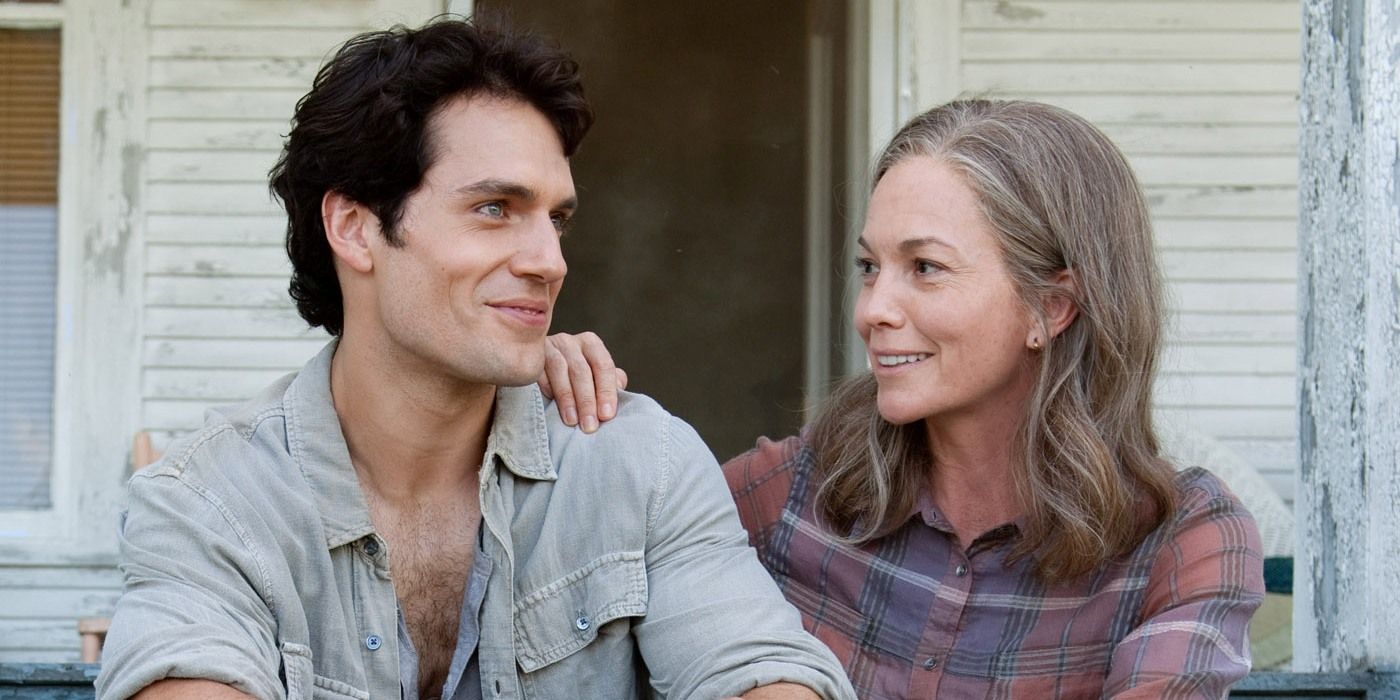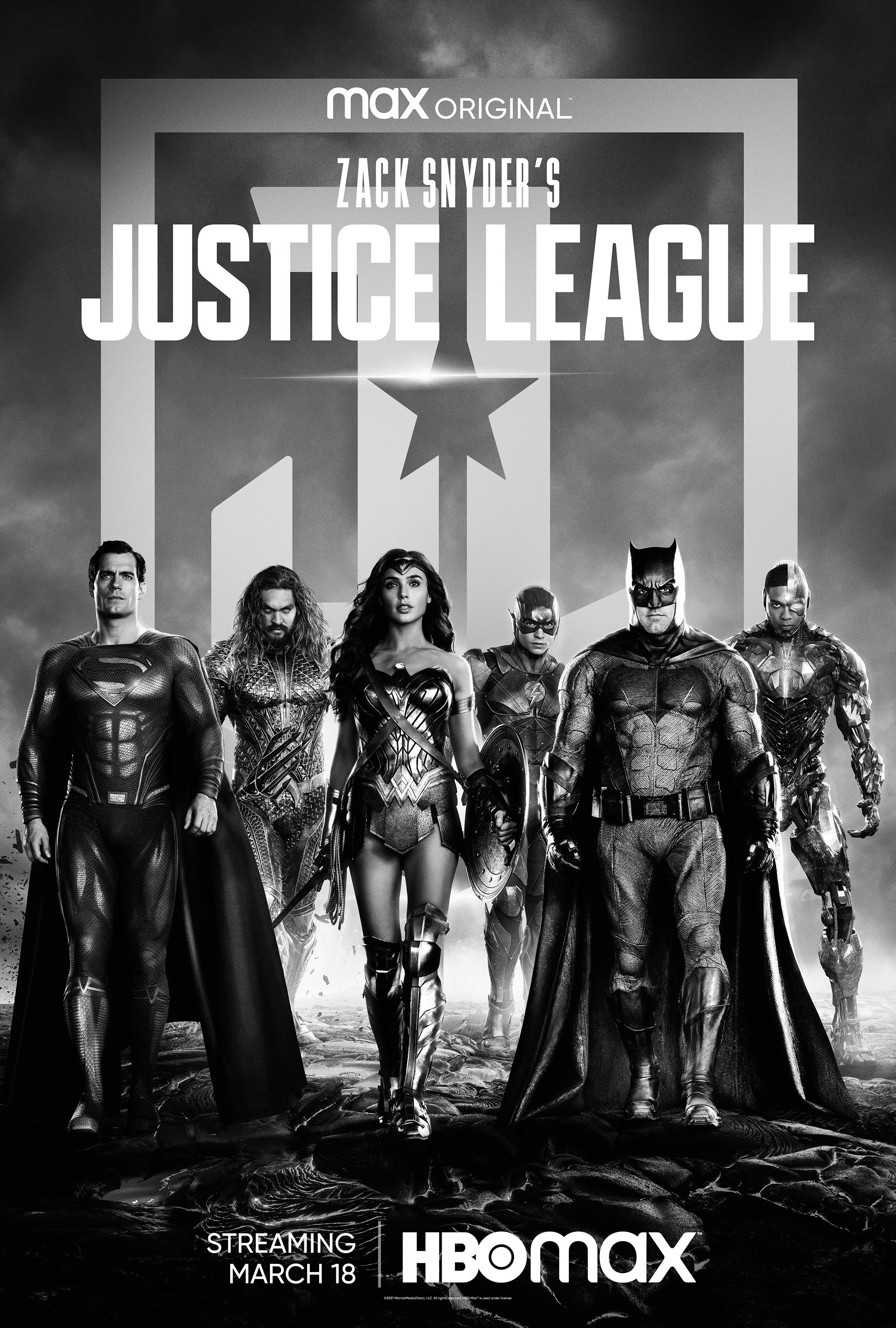WARNING: This article contains SPOILERS for Justice League
-
There's no question Joss Whedon's writing can be felt in Justice League, but not every joke or line made the movie better. That isn't to say that Whedon's work came up short, or how funny/polished/acclaimed it would be if all the changes to Zack Snyder's version were never made. But there's no question that the Avengers director has a writing and comedy style all his own, which means several moments of the finished Justice League can be chalked up to him alone - including how well or poorly they worked in the overall film.
Each moviegoer will have their own opinions, and fans of Joss Whedon and Zack Snyder are equally likely to defend their favorite artist. The first step is zeroing in on not just what was changed, or how, but why. We've narrowed our viewing down to the moments that scream Whedon to our ears, so let us know what you think of our rulings.
RELATED: Every Justice League Change Joss Whedon Made
Needless to say, there will be SPOILERS in our list of Justice League lines that are DEFINITELY Joss Whedon's.
11. "It Means Hope... Which is Like Your Car Keys."
It doesn't take long for audiences to realize that the tone of Justice League is going to be different than Man of Steel - both from a comedic point of view, and in vision. The film opens with mock cell phone footage of a pair of children giving Superman a quick interview after saving the day. Looking beyond the first glimpse of Henry Cavill's controversial moustache-less-through-CGI lip, the kids ask - once again - about the symbol on his chest. The symbol that, as was established in the first movie, means "hope" in the language of his home planet of Krypton. But for the first time, that word is taken from an abstract concept to a humble, folksy one - likened to car keys: "easy to lose, but if you dig around... it's usually close by."
Does it Work? This is the hard question to answer, since the intention of the scene is clear enough. Not only is it an attempt to set a new tone for Superman as a smiling, cheerful, down-to-Earth role model right out of the starting blocks, but get that word "hope" in for those who felt Snyder's version had been lacking. The fact that Superman was about to attribute to his father before catching himself is a nice touch, but the gulf between this vision of hope and the one that shaped Jor-El of Krypton's view is massive. For those who agree with Pa Kent's version of hope that "comes and goes like a river" or car keys, it's about time. For those who preferred Jor-El's notion of hope as a constant, even if it meant not submitting during times of horror, it's bound to miss the mark.
Also... that missing mustache and highlighted Superman suit is a lot to take in without warning.
10. "A Scout... From Space? Like an Alien Army?"
Look, we're not saying that Joss Whedon is responsible for ALL of the ways Justice League is exactly like The Avengers, since the role and plan of Steppenwolf and his Parademon army was set long before Snyder stepped out of the director's chair. That being said, out of all the changes Whedon made to Justice League, the task of establishing the mythology and plot machinations of the villain probably amounts to the biggest. The most fundamental change to Snyder's planned cut of the film. Snyder's cut was an extra hour longer, and judging by the reshoots, inserted shots and lines of dialogue, Whedon was tasked with outlining the alien army and cosmic McGuffin as quickly as possibly. Literally drawing the audience a picture was one part, but this conclusion drawn by an unnamed thief in Batman's first scene is the other.
Does it Work? On the surface, yes. After explaining to the random thug (played by Holt McCallany) that he's being used as bait, since these alien soldiers respond to fear, Batman returns to the rooftop to see the Parademon self-destruct. The fact that its self-detonation leaves an imprint of three boxes (the mechanics and purpose of which we challenge anyone to offer) can be written off as a quick-and-dirty way of getting the audience up to speed. Still, Bruce explaining that the alien is "a scout" to the goon, allowing the criminal to grasp the forces at work surprisingly fast (and Bruce openly using Alfred's name) is likely to stand out.
Not only because it's a big break from the version of Batman introduced in Dawn of Justice, but because the treatment of criminals as harmless or laughable isn't usually how modern Batman movies have leaned. The fact that Whedon's original scene was too funny even for WB helps explain the lighter mood and loosened Bat-tactics.
9. "That's Not a Saying. That's The Opposite of What The Saying is"
The jokes added in Joss Whedon's reshoots (and the green screen and wig work plainly denoting them for the eagle-eyed) have received mixed approval, but one which lands well enough to be used in trailers comes when Bruce Wayne meets Arthur Curry. His attempt to recruit 'the Aquaman' proves fruitless at first, with Arthur emphasizing that he just wants to be left alone. Asking Bruce if he's ever heard of the saying that "the strong man's strongest alone," Wayne's frazzled response - Joss Whedon's addition - proves Arthur Curry's stubbornness is guaranteed to give him some trouble.
Does it Work? Well, not really. Because that actually is the saying, as delivered in Friedrich Schiller's play Wilhelm Tell. It's also an incredibly insightful bit of writing for Arthur Curry's character, positioning his lone wolf nature as informed and shrewd, not just dislike for being a 'team player.' The play tells the story of a powerful, skilled Swiss revolutionary who, also at first, shrugs off the call to join up with a resistance. While these would-be freedom fighters claim that together, even the weak grow strong, Tell counters: "But the strong man is strongest when alone." The joke works in the movie, but makes Bruce Wayne seem misinformed, or ignorant in the process.
8. The "Thirstiest" Reporter in The World
If the mission in Justice League's reshoots was to lighten the mood, and inject comedy where the tone might be a bit too downtrodden or grim, then the question of Lois Lane's life since Batman v Superman was going to be a challenge. When audiences last saw her, she was mourning the death of Clark Kent alongside his mother, Martha - dropping soil onto his coffin while wearing the engagement ring he never got to give her. We may never know what the original plan was, but in her first scene in the theatrical cut, a joke about Lois Lane's hunger for sexual attention may be the most memorable, when Martha encourages Lois by claiming Clark always said she was the thirstiest young women he had ever met... hungriest."
Does it Work? This may be the area where Whedon's writing has come under the most scrutiny and criticism, and in all honesty, it's easy to see why. The idea of sexualizing any of the women in Man of Steel or Batman v Superman seems odd in hindsight, and this sophomoric bit of comedy aimed at young adults is a much clearer fit for Marvel's universe than Snyder's ("thirsty" being a recently-modern term for men or women craving attention, usually sexual).
It's guaranteed to get a laugh in the moment, but sandwiched between two much better, wholesome sentiments - Martha telling Lois that Clark promised she'd win another Pulitzer, and Clark's legitimate praise that Lois could "smell a story farther away than he could hear" - it sends up a red flag about the new writing of DC's women that... doesn't get much better.
7. "What Is Brunch?"
The early trailers for Justice League left little doubt about the source of comedic relief, with Ezra Miller's Barry Allen getting more than one lighthearted line or facial expression. The first of which comes when he instantly accepts Bruce Wayne's offer to join a superhero team. The admission from Barry that he "needs friends" was there from the start, but the obviously green-screen-ed bit of stand-up comedy Barry spins about brunch - "what IS brunch? I mean, you wait in line for an hour for, essentially, lunch" - is a good example of how far apart the movie's original sense of humor and Whedon's is going to get.
Does it Work? The joke is a fine bit of comedy for those enjoy the particular brand, but whether the scene actually needed it is up for debate. As a reminder, the scene's earlier jokes about Barry engaging in very competitive ice dancing, and interrupting Bruce to accept the offer after Aquaman roundly refused it lighten the mood on their own. The adding of the brunch joke sets up the mid-credits scene racing Superman, but it's a shame that the callback-set-up distracts from Barry's real message: being as fast as he is means he's living in a world all by himself. A great layer to add, which may be enough to outweigh the drawbacks for Whedon fans.
6. "I Didn't Bring a Sword... He IS Tall"
If word had spread during production that Batman had become one of the "jokier" members of the Justice League, comic book fans would probably have been less than optimistic. That's not usually Batman's shtick, and with these new takes on The Flash and Aquaman, it might seem like overkill. Nevertheless, that is the case, meaning Bruce Wayne delivers plenty of one-liners and winks to the audience... even when his original lines were already used in the trailers. Like when he finally get behind the controls of his Knightcrawler tank and comes to Diana's aid spouting Whedonesque quips: "Sorry guys, I didn't bring a sword... Jesus. He IS tall."
Does it Work? We're grouping together these two separate lines since they appear to be from the same reshoot. In the trailer Bruce was already shown to dive behind the controls and utter a more commanding "my turn." And instantly, fans read it as both confidence in Batman's arsenal, and a chance for him to return the favor after Diana saved him from an attack in Batman v Superman's final battle.
Instead the sword joke is one of Whedon's least clever or awkward quips, and combined with the observation of Steppenwolf's height, makes Steppenwolf the subject of fun... when he was murdering innocent people just minutes earlier.
5. *The Flash Falls Onto Diana's Chest*
The battle between the budding league and the Parademons concealed beneath Gotham Harbor was anticipated as the first major action set piece, giving each of the heroes a moment all their own. But it may be Barry Allen who gets the real emotional home run of the sequence, with Bruce Wayne urging him to save a single innocent an trust that his path would be obvious from there. That's exactly what happens, before The Flash gets his real moment in the spotlight, delivering Diana's sword into her hand with a single tap... before tripping face first into the cement. The real joke fans are left to linger on comes after he and Diana have reached the bottom of the structure. When debris comes falling down, Barry saves Diana, and awkwardly lies on top of her before righting himself and shifting his eyes even more awkwardly.
Does it Work? No words are actually uttered, but multiple sources have confirmed this moment is all Whedon - believable since the same 'joke' was used in The Avengers: Age of Ultron when Bruce Banner fell face first into Widow's cleavage. What makes it the extra level of creepy is that the actress lying down is Gal Gadot's double - meaning she can't really move or show her face. Gadot's reaction is stitched in later, Barry's puzzled reaction goes beyond cute to exaggerated, and the added shot of the double from behind standing up - since Diana never fell in the first place - makes it all a mess.
4. "Did Steve Trevor Tell You That?"
When fans of Wonder Woman said that they hoped Justice League would connect or expand on Diana's story, they were probably hoping for a change in tone, humor, heart, or maybe just a director. The answer from the studio's standpoint was... simpler than most would have liked, though. As Diana tries to get through to Victor Stone she mentions that she lost someone close to her, leading her to close herself off like he has. Those who saw Wonder Woman know who she meant, but that was too subtle for some. Later when explaining that Bruce should also move on from his guilt and loss, he asks pointedly: "Did Steve Trevor tell you that?" and gets a demigod shove for his trouble.
Does it Work? Honestly, for most audiences, it probably will. The overwhelming success of Wonder Woman almost certainly drew new moviegoers into Justice League screenings, and the overt namedrop isn't far from what Marvel's shared universe is built on. The problem isn't that Bruce's mention is wrong - it's rude and out of left field, but Bruce isn't perfect - it's just the least nuanced or interesting way of carrying Wonder Woman's success into another film. It leads directly into the semi-romantic scenes between Bruce and Diana though, and that was a must for Whedon (and is a subplot plenty will enjoy seeing).
3. "The World Needs Superman, The Team Needs Clark"
The overriding theme added into the movie with help from Joss Whedon is the emotional need for Superman to, in essence, be the version of himself that even casual fans identify with. An unshakeable, unbeatable Boy Scout, as well as an alien champion. But that isn't the whole story, as Bruce comes to realize when Alfred agrees that with a villain like Steppenwolf, the world needs Superman. Bruce doesn't disagree, but his shaky start of a superhero response team reveals another truth: the team needs Clark.
Does it Work? It does as a sentiment for comic book fans, since it makes Clark a down home, American values every bit as significant as his alien superpowers. Clark Kent is the source of the affection, teamwork, and sense of community needed to unite heroes as much as everyday people. Sure, it's hard to argue with people who say the line rings false since... Bruce never actually knew Clark at all. But since the audience did, we'll mark this as a great sentiment, well-delivered.
2. Coming Back To Life Felt "Itchy"
Of all of Joss Whedon and WB's changes, the most astonishing is the scene which follow's Superman's resurrection and battle with the League. The final trailer for Justice League opened with Zack Snyder's version of the scene, following Lois out into the corn field of the Kent Farm to find Clark waiting for her. But instead of a comment about the engagement ring she now wears, Lois inquires about the process of coming back from the dead. Specifically, how it felt. Needless to say, Clark's response - "itchy" - isn't what most were expecting.
Does it Work? Considering how poorly-explained the actual resurrection of Clark Kent is in the movie, most audience members were probably hoping for some kind of insight. Was Clark dead? Did his spirit move on, only to be pulled back to life? Was he dreaming? Does he know how long he's been gone? Instead Whedon only offers a joke used in Buffy the Vampire Slayer, when a demon attempted to burn the humanity out of Angel, who replied that "well, you know, it kinda itches a little."
Whedon fans may love it. Superman fans hoping for anything but a half-joke will have to make do with it, and Clark's further clarification that his return was "weird."
1. "I Bought The Bank"
The shot of Martha Kent packing up a U-HAUL and leaving her farmhouse in the movie's title sequence was probably all audiences needed to grasp her struggle. The "sold" sign out front of the house covers the rest. That scene between Martha and Lois ("thirsty") explains it further for anyone who missed it, as Martha confirms the bank has taken possession of the Kent Farm, presumably without Clark's salary helping keep it in the family. Which is why the final farm scene is such a treat, as Bruce Wayne informs Clark that he's taken care of Martha's financial problems - by buying the bank.
Does it Work? Whether the scene is all Whedon's doing, or just the final joke - told against green screen, and carrying on in voiceover as Clark and Bruce walk away - it's really doubling down on Bruce Wayne as closer to Tony Stark, the comedic, indulgent billionaire. It would have been enough to simply buy the farm, but buying the bank is the kind of overkill that suits Stark. Bruce explains it by saying that buying entire companies to solve a problem is a reflex... but that's never really been shown.
It's a feel-good button to the scene that most will enjoy, but may highlight how far the film moves away from the original plan by the end. We can't think of how else that scene would have ended, other than another joke. Perhaps one related more to Bruce spending time on a farm than his frivolous spending. We may never know.

